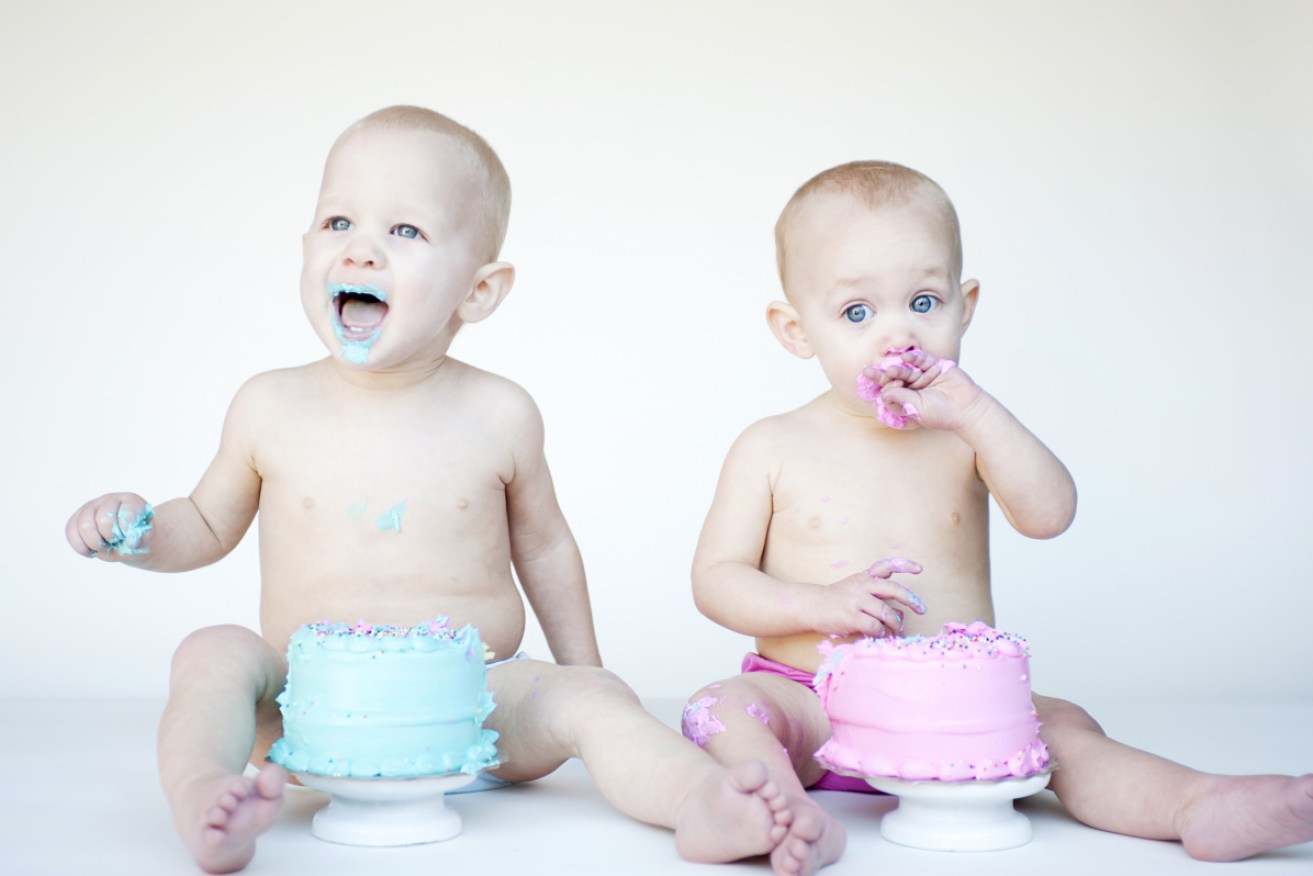Hoping for a boy? Keep the stress down before you conceive


Boys really are good-time creatures. More tend to be born during prosperous and peaceful times. Photo: Getty
A new study finds that stressed mothers are much more likely to give birth to girls than boys.
On average, across most cultures, about 105 males are born for every 100 female births.
The main theory holds that men are excellent at killing themselves via violence, accidents, poor attention to health concerns and suicide.
So nature throws a few more into the mix with the idea that numbers even out overall.
Stress creates a greater divide in the sexes
But in this study from Columbia University, the ratio of boys to girls born to stressed women was markedly skewed.
Physically stressed women gave birth to more than twice as many girls – with a ratio of nine to four.
Psychologically stressed women had three girls for every two boys.
These are big differences, and even more intriguing when considering this was a small study.
Dr Catherine Monk, professor of medical psychology at Columbia University Vagelos College of Physicians and Surgeons, examined 27 indicators of psychosocial, physical, and lifestyle stress collected from questionnaires, diaries, and daily physical assessments of 187 otherwise healthy pregnant women, aged 18 to 45.
About 17 per cent (32) of the women were psychologically stressed, with clinically meaningful high levels of depression, anxiety, and perceived stress.
Another 16 per cent (30) were physically stressed, with relatively higher daily blood pressure and greater caloric intake compared with other healthy pregnant women.
The majority, nearly 67 per cent (125) were healthy.
So were the results a fluke or reflecting the big picture?
“Other researchers have seen this pattern after social upheavals, such as the 9/11 terrorist attacks in New York City, after which the relative number of male births decreased,” said Dr Monk in a prepared statement.
“This stress in women is likely of long-standing nature; studies have shown that males are more vulnerable to adverse prenatal environments, suggesting that highly stressed women may be less likely to give birth to a male due to the loss of prior male pregnancies, often without even knowing they were pregnant.”

Percentage of male births from 1918-1939 presented as a line graph with eras labeled: Spanish Flu, Roaring ’20s and Great Depression. Graph: University of Utah
A June study from the University of Utah supports the gist of Dr Monk’s argument, if not the scale of her findings.
The Utah study analysed more than 100,000 births over a 21-year period – from 1918 to 1938 – and found a significant drop in the percentage of boys being born during the Spanish Flu (1918-20), the Roaring ’20s (1925-29) and the Great Depression (1932-36).
“Quite clearly what we find is that during bad times, we see many fewer boys being born than during the good times,” one of the authors told Ohys.org.
“During the Roaring ’20s, this is where we are seeing big spikes—117 boys born for every 100 girls.”
Still, it’s surprising that boys birth at all
A 2011 University of Adelaide study, which investigated data of more than 574,000 South Australian births over a 30-year period (1981 to 2011), confirmed that boy babies are much more likely to experience potentially life-threatening outcomes at birth than girls.
The study found:
- Boys are more likely to be born spontaneously pre-term
- Boys show a 27 per cent higher risk for a pre-term birth between 20-24 weeks’ gestation, 24 per cent higher risk for a pre-term birth between 30-33 weeks, and 17 per cent higher risk for pre-term birth between 34-36 weeks
- Mothers carrying boys are 4 per cent more likely to suffer gestational diabetes
- Mothers carrying boys are 7.5 per cent more likely to suffer pre-eclampsia at term
- However, pregnant women carrying a girl have a 22 per cent higher risk for early onset pre-eclampsia requiring a pre-term delivery.
On a poignant note, mothers who are dissatisfied with their male partners spend more time talking to their infants – but only if the child is a boy, according to a study published in September from the University of Cambridge.








